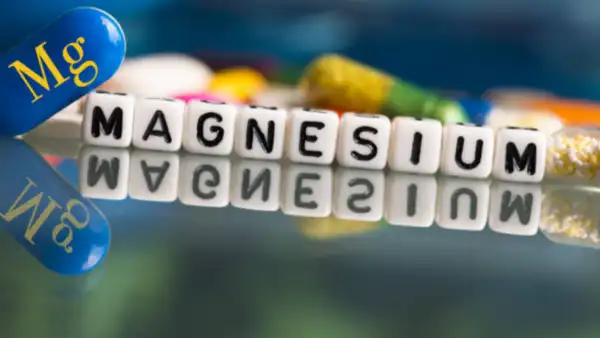Which magnesium supplement is #1? If you have been tossing magnesium supplements into your cart without a second thought, you might be pinching your pocket, that too without any results. Choosing the right magnesium supplement is crucial because not all magnesium is absorbed the same way. Whether you are getting it to improve sleep, anxiety relief, muscle cramps, or overall wellness, choosing the wrong type could mean zero results. So, which magnesium supplement actually works? Well, let’s turn to the experts for the solution. Dr. Joseph Salhab, a Florida-based gastroenterologist specializing in digestion, liver, pancreas, and nutrition, breaks it all down and reveals the most effective, science-backed option that really delivers.The role of magnesium Magnesium is an essential mineral that is responsible for over 300 bodily functions. Despite its importance, the role of magnesium is often overlooked, resulting in an estimated 15-20% magnesium deficiency even in developed countries. From calming the nerves after a long day to helping you sleep better, feel more energized, and keep your heart healthy, magnesium is essential for many vital functions of the body. A deficiency in this nutrient can lead to symptoms like fatigue, muscle cramps, and anxiety. When you cannot get the nutrients adequately through dietary intake, supplementation might be required. Dr. Salhab says that the best choice really depends on individual health needs. Let’s take a look. Magnesium oxide

Magnesium oxide is a common supplement. However, the doctor says that he does not recommend it, due to its limited effectiveness. It is an inorganic salt of magnesium formed with ions of magnesium and oxygen. This over-the-counter supplement is used to treat constipation, indigestion, and headaches. “It’s poorly absorbed and mainly used for really bad constipation, so I don’t recommend using this for other than that,” the gut doctor said, in a video shared on Instagram. Magnesium citrateOne of the more common magnesium supplements, this is taken orally to replenish low magnesium levels. It also has a laxative effect, hence sometimes used in higher doses to treat constipation. “It’s better absorbed, it gives a more gentle laxative effect, and this one’s often used for supplementation,” the doctor shares. Magnesium glycinate

(Pic courtesy: iStock)
This supplement is formed from elemental magnesium and the amino acid glycine. Glycine is linked with improved sleep and is also effective for treating certain inflammatory conditions, including heart disease and diabetes. “I personally take this one. It’s really bioavailable, it’s gentle on the stomach, and it’s great for anxiety, sleep, and muscle cramps,” the doctor said.
Magnesium L-threonateMagnesium L-threonate is often marketed for cognitive benefits, such as improved focus and memory, and to manage certain conditions, such as depression, Alzheimer’s disease, and age-related memory loss. However, Dr. Salhab cautions that “the evidence is limited.” More studies are needed to prove its effectiveness. Magnesium malate

Magnesium malate has malic acid, which is well absorbed by the digestive tract. “This one’s used for muscle pain and fatigue, and it’s slightly stimulating, so it’s best not to use this one at bedtime,” the doctor suggested.Disclaimer: This content is for informational purposes only and is not intended to provide medical advice, diagnosis, or treatment. Always consult with a qualified healthcare professional before starting any new supplement, especially if you have underlying health conditions or are taking other medications. Individual results may vary.


